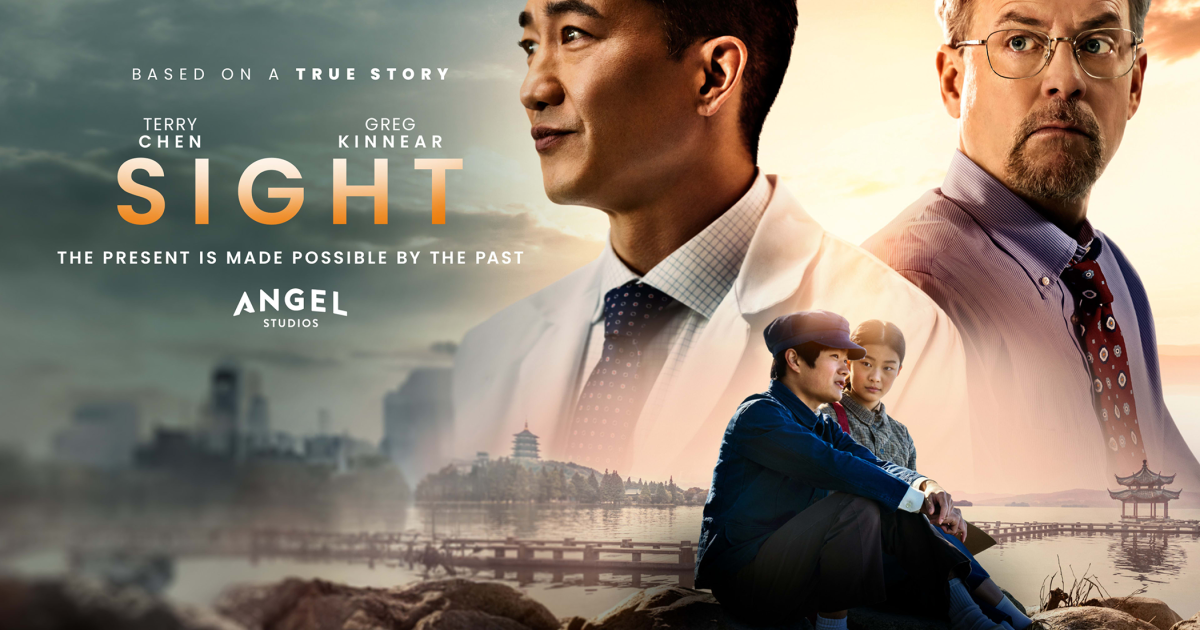
Dr. Ming Wang (Terry Chen) is having a terrible time letting go of the past, and no one could blame him for that. But maybe he doesn’t have to. Maybe he can move forward, holding the past more loosely and integrating it with his present.
This is one of the big questions posed by Sight, a gripping and inspiring film based on the true life story of Dr. Wang, a Chinese immigrant who faced trauma and loss in his homeland, but who eventually pioneered an eye surgery technique that has restored sight to millions around the world.
The movie, directed by Andrew Hyatt, flashes back and forth from the present, where Dr. Wang is an established eye surgeon in Nashville, Tenn., to his upbringing in Hangzhou, China, where as a boy in 1968, he dreams of following in the footsteps of his physician parents. Even as they carefully ration rice to eat, Wang’s loving family is driven by academic success and the privilege of helping people, not by the lure of a high income.
This drives young Ming as he watches with horror as his world crumbles under an uprising during the Cultural Revolution. The brutality of the Red Guards as they abruptly shut down all schools and attack the people he loves most leaves an imprint of trauma on the adolescent, played movingly by Ben Wang. His deepest loss is Lili (Sara Ye), his childhood friend whom he promises to protect yet inevitably cannot. This perceived failure haunts Ming for decades. The schools open up again just in time for him to shoot for the moon and apply to the top university in China, where his academic odyssey takes him to the Ivy League schools of the United States.
In present-day 2007, Dr. Wang is met with a seemingly impossible challenge: to restore the sight of Kajal (Mia Swaminathan), a radiant little girl from India whose stepmother poured sulfuric acid in her eyes to intentionally blind her and increase her chances of success as a street beggar. (Trigger warning: Those scenes are wrenching.) Under the doting care of an American nun (Fionulla Flanagan), Kajal emanates contentment, despite her sightlessness.
Dr. Wang throws himself, body and soul, into finding a medical needle in a haystack that might provide a miracle for Kajal. His life is completely out of balance, a fact pointed out by his research partner, Dr. Misha Bartnovsky (Greg Kinnear). Their friendship and banter are one of the highlights of the movie, even as it is strained to the breaking point by Dr. Wang’s emotional baggage. Though he cares deeply for his patients, especially darling Kajal, he can’t get past what drives him: that somehow by helping patients see again he is helping Lili, wherever she is. Absolution is a dangerous and deceitful motivator. Everyone can see this except for him.
Though some of the scenes are a bit emotionally heavy-handed, the movie (like its Angel Studios counterpart, Cabrini) uses a light touch where faith is concerned. Chen is moving and persuasive as the gentle doctor (so soothing is his voice that one wants to beg him to narrate audiobooks), and Kinnear anchors his part in a relatable, humane performance. What’s it like to be best friends with a genius? It’s not all a bed of roses, and Kinnear expertly conveys the complexities.
We saw this movie twice, once with just my husband and me, and then again two nights later with three Chinese international students. They enjoyed the story and cheered for their countryman as he defied the odds and became an academic and career success (echoing their dreams). But they found it odd and confusing that the movie insinuated that the government was the good guy during the Cultural Revolution, instigated by Mao Zedong and the Communist Party.
I hope this doesn’t distract them too much from the main takeaway of the movie, that true success lies in helping other people, and only God can truly open a person’s eyes, spiritually. (Angel Studios. In theaters)
